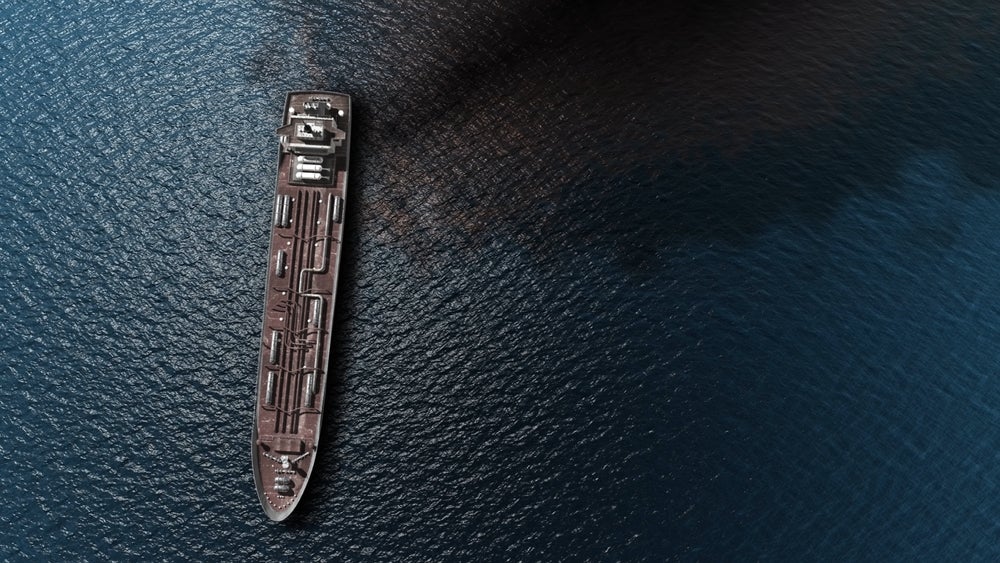The offshore oil and gas industry is a sophisticated, mature global player and, as a source of such a critical and vital resource is, quite rightly, highly regulated.
This level of regulation has created an industry where expectations of safe and efficient working are high and well met but there are still incidents, despite us constantly striving for a zero-incident target in terms of safety, legal, environmental and security issues.
It is fair to say that self-regulation within the industry has played, and continues to play, a vital role. Self-regulation enables the industry to run its business in a safe and efficient way, complying and meshing with national and international requirements such as legislation from governments, the International Maritime Organisation (IMO), flag states and class organisations, and constantly improving and setting ever-higher goals.
What is important is that the industry develops guidance for itself and thus satisfies the stakeholder requirements of governments, clients and contractors.
WHAT IS SELF-REGULATION?
Trade associations do not regulate in the same way legislators do. They provide guidance to members developed from years of international experience and work to update and introduce new guidelines wherever there appears to be a need.
How well do you really know your competitors?
Access the most comprehensive Company Profiles on the market, powered by GlobalData. Save hours of research. Gain competitive edge.

Thank you!
Your download email will arrive shortly
Not ready to buy yet? Download a free sample
We are confident about the unique quality of our Company Profiles. However, we want you to make the most beneficial decision for your business, so we offer a free sample that you can download by submitting the below form
By GlobalDataThis enables members working to those guidelines to be ‘self-regulating’ rather than looking to clients or governments to impose regulation. Self-regulation is thus the logical result of action by industry participants to address a number of concerns.
If an industry does not self-regulate, then some other body will impose its own rules and demands, either in the form of governments or through client requirements. This causes considerable strain to each contractor and extra, unnecessary costs. The strain includes finding out the different requirements, tendering with allowance for them and then complying with them for each project.
For contractors who often work for different clients all around the world it is a potentially repetitive, expensive and avoidable burden – self-regulation ensures that the same language is spoken worldwide.
In a mature, responsible global industry such as the offshore industry, self-regulation is a reasonable approach with proven benefits for all parties.
SELF-REGULATION: A BENEFIT FOR ALL
Self-regulation is undoubtedly good for contractors, clients, governments and regulators – indeed all parties involved in the industry.
Contractors benefit by having consistency in requirements, as set out in industry practice. This consistency ensures they can avoid wasting time, money and effort addressing a multitude of variations in local regulations and client conditions.
If self-regulation is effective, well used and well known, it becomes a promotional tool for those contractors who can advertise that they conform to it – within the International Maritime Contractors Association (IMCA) we know that in many parts of the world this has lead to very definite benefits for our member companies.
Litigation is around us every day, meaning it can be more vital than ever for a company to be able to prove to a court that it has proper systems in place for health and safety and its general operations. Conforming to safe practices that are accepted by the industry, and published and regularly reviewed by a reputable trade association goes a long way towards achieving that.
This is by no means a one-sided relationship – indeed, it wouldn’t work if it was. Where industry good practice is set out and accessible, each client need not ‘reinvent the wheel’ – they can specify that work is carried out in accordance with recognised guidance, only needing to add the contract-specific requirements for a particular organisation.
Removing the wasteful inefficiency of varying regulations means that cost savings to contractors can be passed on to clients through lower contract prices – very much a win-win situation for all, especially in these busy times when time spent unnecessarily is expensive in every way.
Governments and regulators also benefit from self-regulation. Governments provide the top-level structure of legislation to deal with a range of issues in the public interest. There is not, in any pragmatic sense, time for a government to produce detailed legislation for every part of an industry’s operations. Government action can even be avoided entirely in relation to many aspects of operations if an industry can successfully self-regulate.
Governments, international bodies and companies can, and do, rely on self-regulatory groups for providing a structure for legislation to build on when a need is found. It is also fair to say that self-regulation improves the conduct of an industry and drives out unsafe practices together with those who use them; and, of course, it is far easier to implement quickly and to change than legislation. With the rapid advances in technology, this flexibility is an undoubted benefit. And, of course, guidelines can be improved easily, if necessary through experience and feedback from any party.
IMCA’S ROLE IN SELF-REGULATION
IMCA, as a trade association with well over 400 member companies in 48 countries, has been producing guidelines for a wide variety of marine operations – initially for diving and dynamic positioning (DP), then for safety, training and competence, marine, ROV and survey operations.
Currently there are more than 200 IMCA guidelines that are respected, regularly used all around the world and accepted. Take-up has also included reference by the IMO to IMCA DP guidance; regulatory acceptance of IMCA guidance (for example by the UK Health and Safety Executive); and wide international recognition of the IMCA diving supervisor scheme.
If clients or government bodies quote the guidelines, then they can become law, standards or contractual requirements. This is a powerful means of acceptance and spread of good practice and helps all parties to be safe and efficient, raising international standards.
The spread of IMCA’s guidelines is in direct proportion to its growing number of members; and the penetration of the documents increases gradually as clients require the guidelines to be used as a condition of contract. Many larger clients have moved towards using a single approach world-wide for all their offices and projects in all regions and the approach used is often based on IMCA guidelines.
In addition, as the industry moves into new frontiers, be they geographical zones or because of deeper waters, IMCA guidelines are used as an available, acceptable reflection of industry ‘good practice’ for the government or local client to use without having to start all over again from a blank sheet of paper.
Also, the matching audit documents help contractors to complete self-auditing and provide an ideal format for clients to carry out their audits as well.
SUSTAINING SELF-REGULATION
Self-regulation is self-sustaining and raises international standards. The three parties can always work together and continue to have healthy dialogue about the content of their documents. However, it is a fragile structure, being a triangular relationship where a broken link could threaten the whole. There are, therefore, responsibilities and benefits for the three industry parties:
- Contractors need to continue to create the industry good practice guidelines, strive to comply with them and use the guidance with sub-contractors
- Clients need to adopt and endorse the guidance and, where it becomes a contractual requirement, ensure that it is delivered
- Governments must do the same from their perspective
Each group benefits from a healthy, high-quality, safe and efficient industry with a resulting reduction in wasted time and money for all three parties, and IMCA is proud to play a role facilitating input from across the industry. But, it is all too easy to lapse back into the bad old days if this triangular relationship was to break down, so all three parties have a vested interest in playing their part to continue as an industry to sustain self-regulation. Don’t break the loop.
The International Marine Contractors Association (IMCA – IMCA-int.com) represents some 390 offshore, marine and underwater engineering companies in 47 countries.






